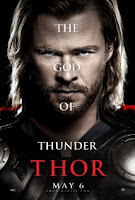A few weeks ago, my husband told Nicole that if she behaved in church, then we could go play places. She immediately associated “play places” with McDonald’s and talked about it until we promised to take her there for ice cream later. As it turned out, she just wanted to play, so my husband and I had coffee and read the newspaper while the girls toured the tunnels of the play place.
 |
| Vancouver riots |
After I’d read all the latest about Will and Kate’s tour to Canada, another article caught my eye. The newspaper columnist brought up the riots following the Vancouver Canucks’ loss of the Stanley Cup, and suggested that the media had a role to play in those events. While I hadn’t viewed any footage of the riots, I’d seen enough comments in my friends’ Facebook statuses to get an idea about what had happened—and to be disgusted myself over some people’s reactions to a game.
This columnist suggested that, in a current where the popular media glorifies any sort of violence, we shouldn’t be at all surprised when our young people react to losing what is often a violent game. Fights in hockey games are officially frowned up—but don’t they make the game more exciting? Check out the video games teens are playing these days; how many involve shooting and killing? What about movies—computer animations has made big action and big violence a lot more possible these days (at least, I assume a lot of it is computer generated…). Just turn on the TV news or look at the newspaper; I don’t often do that, because what appears is more violence—murders, robberies, car accidents, etc.
 I agreed with this newspaper columnist, who suggested that the media—which has been pointing fingers at everyone else for the riots—should take a look at their own role. The media hyped up the game and the fact that the Canucks were sure to win (I never thought so). Movies and TV hype up violence and revenge. So why were we surprised that Vancouver rioted when they lost?
I agreed with this newspaper columnist, who suggested that the media—which has been pointing fingers at everyone else for the riots—should take a look at their own role. The media hyped up the game and the fact that the Canucks were sure to win (I never thought so). Movies and TV hype up violence and revenge. So why were we surprised that Vancouver rioted when they lost?
One movie recently had a more positive message. While Thor had its share of action (and fighting), the overall message was one of non-violence and peace. In fact, Thor is banished from his kingdom by his father because he wants to fight and his father urges peace. Only when Thor learns the value of sacrifice—giving up his own life to save those he loves, rather than trying to fight and cause more harm—does he regain his rightful place as king. He returns to his throne and even tries to save the brother who betrayed him. Hopefully the sequel—and other Hollywood movies—will continue this message of peace rather than war.

No Responses Yet